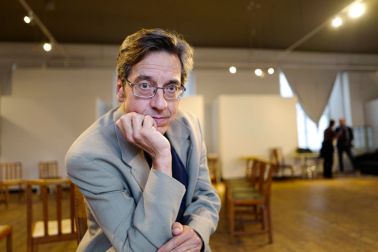The first thing that strikes you when you arrive for an investiture at Buckingham Palace is how polite the police are. In contrast to their colleagues in other grimmer branches of law enforcement, they are friendly, jokey, and brimming with goodwill. Even the security men who search your car for explosives before you drive through the palace gate are jovial and easy-going. You might think that herding recipients of honours into Buckingham Palace might be exactly the kind of constabulary duty W.S. Gilbert had in mind when he decided that a policeman’s lot was not a happy one, but I don’t think I’ve ever seen policemen looking more cheerful. Are they specially trained to appear so on ceremonial occasions, or is there just something about being in the immediate service of the Queen that brings out the fun and gaiety in them?
The merriment in the courtyard continues to bubble away inside the palace, where distinguished royal servants in a variety of military uniforms seem to be taking great pride and pleasure in jobs that in normal circumstances might be considered on the dull side — standing around in a dignified manner, ticking names off lists, directing people to the lavatory, and so on. They all have kind words for the guests and the most exquisite manners. But then everything about Buckingham Palace is surprising and unfamiliar.
I hadn’t quite realised until I went there last week how immensely grand the state rooms at the Palace are. As you look up at the ceilings dozens of feet above your head, wondering how on earth they change the bulbs in the chandeliers, you feel very small; but everybody else looks very small as well. Royal palaces are presumably intended to have that humbling effect on the Queen’s subjects. But small though we have become, we also feel very important; for it’s impossible amid all this preposterous grandeur not to believe that you are somewhere momentous, perhaps at the heart of a global empire. It suddenly doesn’t seem so strange after all to be joining the Order of the British Empire.
The recipients of honours are immediately separated from their guests, who are taken in one direction to the great ballroom where the investiture will take place and where they are allowed to sit down, while we are escorted in another direction to an ornate waiting-room, where we are not. There we stand for more than an hour, sipping mineral water, chatting with our fellow honorees, and receiving instruction on how to behave when we are finally paraded before the Queen. You address her first as ‘Your Majesty’, we are told, and thereafter as ‘Ma’am’. She gives you a medal, chats a bit, and then lets you know that the conversation is over by shaking your hand. The handful of knights among us are warned that once dubbed while kneeling on a stool before the Queen they are to rise immediately to their feet, for nobody will say anything to them like ‘Rise, Sir Lancelot’.
I spend some of the time chatting with Sir George Young, the Conservative Chief Whip, who is about to be made a Companion of Honour, much the greatest distinction awarded this day. Like me, he has reluctantly declined an invitation to The Spectator’s Parliamentary Awards lunchtime ceremony at the Savoy, being committed to lunch with his guests at the investiture. But anxious calls from The Spectator alerting him that he is the winner of one of its awards as well (for his ‘Resurrection’ as Chief Whip) have persuaded him to attend after all.
Then we are all led in line to the side of the ballroom where we are each released in turn to appear before the Queen as the Lord Chamberlain announces our names and the reasons why we are being decorated. Among the 12 CBEs, Kate Winslet and I are the least deserving — she being honoured ‘for services to Drama’ and I ‘for services to Journalism’ — while the others have performed genuinely useful services to society. Still, I feel rather proud at being the only journalist thus honoured as Lord Leveson prepares to publish his report. ‘So you’re a journalist, then?’ says the Queen. ‘Yes,’ I reply, and then it’s over.
The Queen, at 86, has stood there heroically for some 90 minutes dubbing people with a sword, hanging medals round their necks or pinning them to their breasts, making amiable conversation and smiling kindly at those who have done serious, unsung good for other people. Their pleasure at her acknowledgment is touching to behold. There is something a bit melancholy about the proceedings, conducted as it is against a background of nostalgic orchestral music, but it is somehow also magnificent.Grand, overblown and slightly ridiculous an investiture may be, but in what other nation does the head of state relate so personally and intimately to its citizens? Where else is national unity and tradition so well served? Call me a monarchist; I won’t object.





Comments